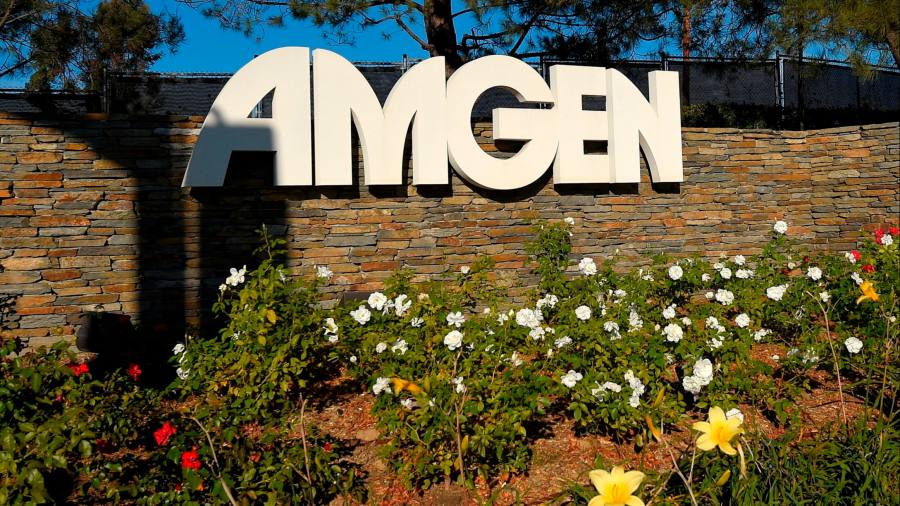
Harried last minute shoppers tend to overspend in the run-up to Christmas. Amgen, the US biotech heavyweight, risks doing the same.
The company is buying Ireland-based drugmaker Horizon Therapeutics for more than $28bn, including debt. The $116.50 all-cash offer represents a 67 per cent premium to the three-month average of where Horizon’s shares were trading at before news last month that the company was in sale talks.
The strategic logic of buying Horizon is hard to fault. Amgen needs to bolster its pipeline for new drugs as pressure on its legacy products grows. Sales of its blockbuster rheumatoid arthritis drug Enbrel fell 14 per cent in the third quarter to $1.1bn. Another hit will come when the US patents on its top selling osteoporosis treatments Prolia and Xgeva expire in 2025. Together the three drugs account for 37 per cent of Amgen’s $26bn in revenue last year.
Horizon will give Amgen a stronger foothold in the lucrative rare disease drug space. Its thyroid eye disease treatment Tepezza pulled in $1.7bn in revenue last year.
But good assets do not come cheap with well-capitalised rivals eager to boost their respective growth profiles. To beat out Johnson & Johnson and Sanofi, Amgen will be paying nearly 45 times EV to ebitda for Horizon. The wider S&P Biotech index trades on a multiple of 11.4 times.
Even the $500mn cost savings being touted, taxed and capitalised, would only cover 37 per cent of the cash premium Amgen is paying over Horizon’s three-month undisturbed share price.
There is also Amgen’s debt burden to consider. This will more than double to nearly $56bn following the acquisition. Amgen’s net debt to ebitda ratio will rise significantly from about 2.2 times to more than 4 times, according to Lex’s calculations. Amgen stressed the combined companies will generate $10bn in free cash flow. It plans to reduce debt leverage back to current levels by the end of 2025.
Amgen has secured a $28.5bn bridge loan to finance the deal. But it will need to tap the bond market to pay that down. Interest rates have jumped since Amgen last sold bonds in February. The 10-year tranche of that offering, due 2032, is currently trading at 90 cents on the dollar and yields 4.7 per cent. Amgen, like most holiday shoppers, will worry about the pinch in the new year.
Our popular newsletter for premium subscribers is published twice weekly. On Wednesday we analyse a hot topic from a world financial centre. On Friday we dissect the week’s big themes. Please sign up here.